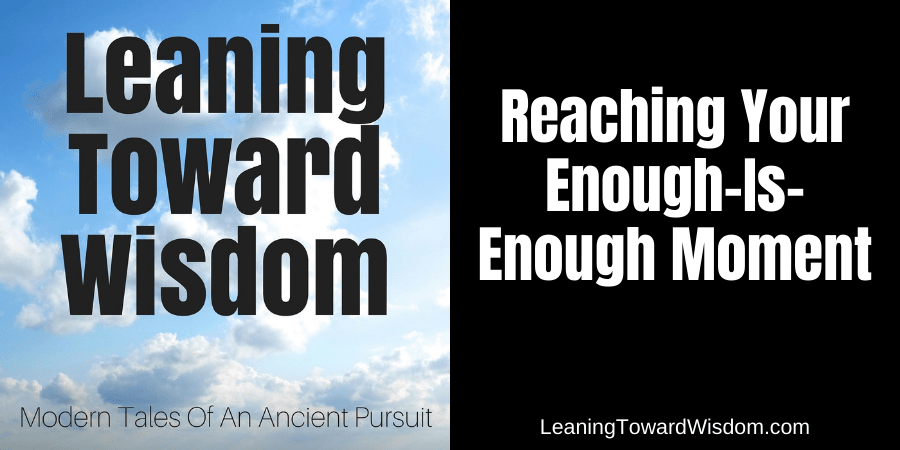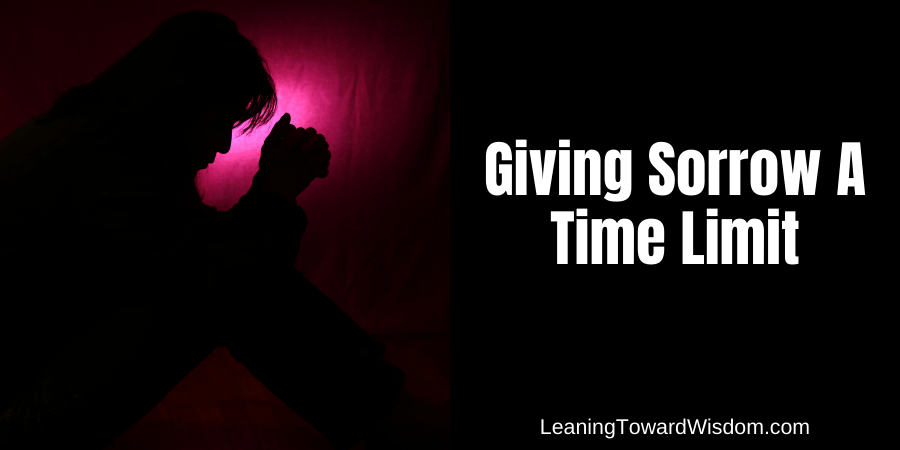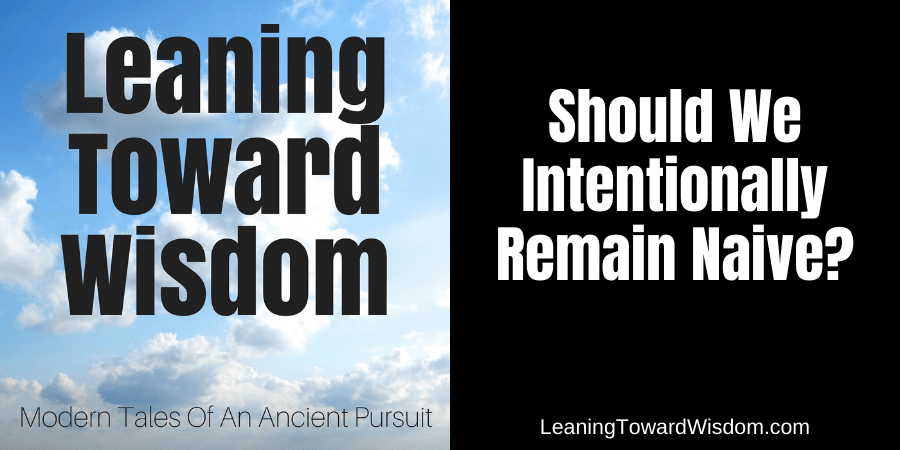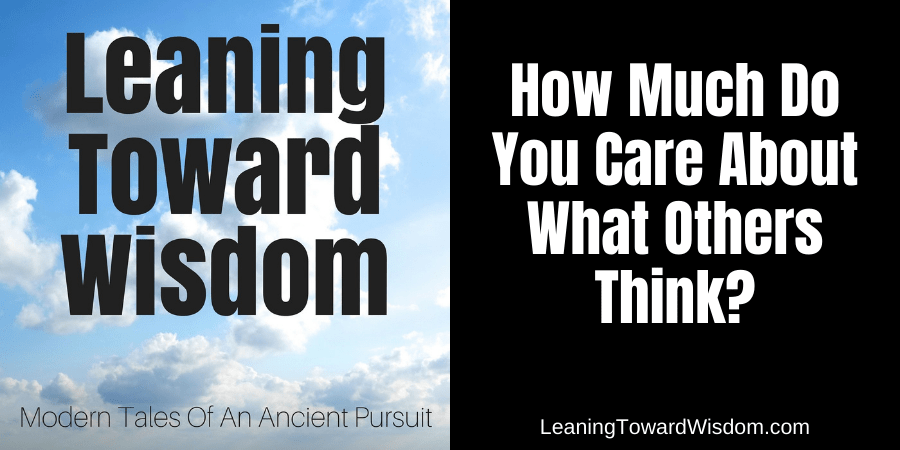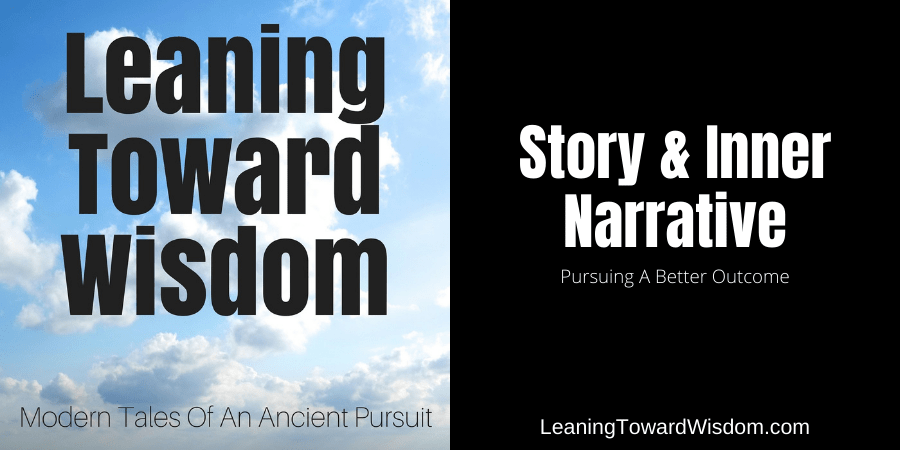Reaching Your Enough-Is-Enough Moment
Podcast: Play in new window | Download (Duration: 33:53 — 31.0MB)
Subscribe: Apple Podcasts | Spotify | iHeartRadio | Email | RSS | More
We were young adults, maybe 20 or so, when it became a common refrain among us. “I’m sick and tired of being sick and tired.” We’d chuckle, but it was true. Sadly, it was mostly just a humorous comment and not some moment of newly found determination. We never attempted to improve our circumstances. Rather, we just chuckled at poking fun at how our lives were going.
It wasn’t that we didn’t want to improve, but we didn’t do much in the way of affecting change. Talk is cheap. And we were really cheap!
I’ve been down. I’ve been out. And I’ve discovered that when you hit bottom you’re not necessarily done. There are always new lows you knew nothing about standing ready to show you firsthand, “Here we are!”
The myth is persuasive. Wrong, but persuasive. Like all the deep fakes that infiltrate our brain daily (if not hourly). We see stories and believe them to be true. Never mind that it’s an illusion propped up behind some insecure, fear-filled idiot behind a keyboard who has less of a clue about things than we do. And we know we’re stupid! 😉
Bigger is better. And so is more.
No, it’s not. There’s enormous value in small, powerful, and profitable endeavors. Mostly, there’s value in small, powerful, and profitable steps toward improvement. That’s the point of today’s show, but such steps don’t get taken until we reach our “enough is enough” point.
We’re just one big break away. One bit of luck that will change everything.
I was in my teens when I started selling stereo gear at a local hi-fi shop. No sales experience other than going from house to house in the neighborhood asking people if I could mow their lawn for $10. I quickly learned, as a straight commission salesperson (which means I earned nothing unless I sold something), salespeople can behave like gamblers, always thinking “the next one” will be the big one. Even more quickly, I learned there is no next big one. There was some moronic, delusional fantasy that the Universe would bend to our need for the next sale to be a big one that paid high commissions. Why would the Universe care that I wanted a new set of wider tires for my car? Fact is, the Universe not only lacks concern for such things, but mostly the Universe has no say in the matter. Shoppers did. And if shoppers came in the store they certainly didn’t want new tires for my car. They had their own desires and if I wasn’t able to help them get what they wanted, well, see ya later new tires!
I had read and re-read Dale Carnegie’s book, “How To Win Friends & Influence People.” I knew the truism he taught about helping others get what they want. Some guy in Dallas with a funny name would come along later and make it one of his more famous quotes…
You can have everything in life you want if you will just help other people get what they want. – Zig Ziglar
Never one to fawn over those “motivational” speaker types, I was skeptical from the get-go about all that. And I was smart enough to know absolutes are dangerous, so when Zig told me I could have EVERYTHING IN LIFE I WANTED…well, I knew it made for a powerfully good quote, but I also knew it was complete rubbish. 😉
But by the time I turned 17 I absolutely knew, as a salesperson, that I had to deliver what shoppers most wanted in order to achieve whatever financial goals I might have. So I quickly realized it wasn’t merely about helping others get what they want, it was – at least for me as a hi-fi sales guy – about helping shoppers get whatever they wanted in a stereo system. If, like me, they wanted wider tires for their car, well, I wasn’t going to be much help. But if I wanted wider tires for my car – and I did – then I knew my path forward was in helping them get whatever they wanted in a hi-fi setup. Context matters.
That path forward was a fast lesson for me. And I wish I were better at remaining disciplined about it, but I haven’t been.
Looking at somebody else makes it seem so easy. So clear. But looking at oneself can be difficult.
He tells me he’s going to go get a job. “What kind of job?” I ask. He rattles off the name of a big company known for hiring manual labor workers for a pretty good hourly rate.
“Okay,” I said. “And why?”
He proceeds to convince me it’ll be his best path forward.
I ask him about a few professional certifications he has. Ones he’s earned through many hours of study, effort and money. “What will you do with those?” I ask.
“Nothing,” he says. He’s focused on trying to earn a living. No matter how modest. I get it.
“If you consider the resources you have available to you, it seems to me, these professional qualifications are near the top of the list,” I remark.
“Anybody, even poor-performing professionals with those credentials, earn far more than the job you’d be applying for to work in some warehouse,” I say.
I challenge him further because it all seems so clear to me – and I know at this moment, he’s confused. Even desperate. Which is why he has to get to place where he’s thinking more clearly.
“Picture the least successful person in your area with these professional certifications. How much do figure they earn in a month?” I ask.
It takes a while, but he comes up with a number. A number significantly higher than the starting wage of the job he’s talking about applying for. But it’s also a number that doesn’t seem terribly reasonable given what he and I both know about these certifications. I suspect he’s guessing low. Very low.
Don’t get me wrong. It’s not a lofty number. It’s not write-home-and-brag-to-your-mamma kind of money, but it’s not likely what the LEAST successful person in his area is earning either. And it certainly beats an hourly wage.
He sees it. I see it. Question is, what’s he gonna do now? And what about those times when we’re in the muck alone with nobody to help us see what we can’t see? What then?
I’ve sold everything I can sell, including some things I didn’t want to sell. But you gotta do what you gotta do. I did.
A friend expressed interest in a piece of video gear I had. I was desperate for $100. One hundred dollars. It may as well have been a million. It seemed like such an enormous amount of money to me at the time. I called him up, reminding him of his interest in this gear. It was easily worth more than $100, but in that desperation, I asked him if he’d buy it. He said he’d better not. And there went my dream of the Universe answering my need for one hundred dollars.
I don’t remember what happened, but here I am today telling you that story so I clearly survived it. Even though I didn’t get $100 from him in exchange for that piece of equipment. I know this, my head was so far down I couldn’t see up. Maybe you’ve been there before. Maybe you’re there now. Scrambling just to figure out, “Now what?” It’s a tough row to hoe! Sadly, I’ve hoed that row too many times over the course of my life.
It’s not the Universe. It’s YOU. It’s ME. We’re the constraint. We’re the hurdle and impediment. But we don’t think so. Surely it’s something else. Or somebody else.
Partly it’s not wanting to accept blame – a’hem, responsibility. Easier to blame somebody else. Something else.
Partly it’s because we think it’s more complex than it really is. If it’s US, then that can seem too easy. And we know nothing is easy. Everything is hard. Until it’s easy. (my favorite quote)
Change is hard. Very hard. Even when we encounter some proverbial wake up call.
Taylor Hawkins was the drummer of the rock band, The Foo Fighters. He was 50 when recently he summoned help due to chest pains. He died on March 25, 2022, with multiple substances in his bloodstream, including weed (THC), opioids and other things that may have contributed to his death. Turns out his heart was twice the normal size, likely due to years of drug abuse overworking the muscle’s ability to perform.
Over 20 years ago on August 1, 2001, he overdosed on heroin, resulting in a two-week coma. He described it as a “real changing point.” Turns out, not so much. Like us, Taylor was likely delusional thinking he didn’t really change much. Or improve much. I mean, when you’re a top-rated rock star living a rockstar life…life is good. Until it isn’t. The wake-up call may have impacted him, but it didn’t stick. I’d love to tell you we’re better than him, but mostly we’re not. It doesn’t often stick for us either.
Because we adjust. We acclimate. We settle into a certain way of thinking, believing, and behaving. Never realizing we’re neglectful. Or destructive. Or at the very least, getting in our own way – preventing ourselves from being better. Forget being your best – how do we even know what that is? – how about we just try to be a bit better than we are?
I don’t do drugs. Never have. Yeah, I’m a prude like that. Always have been. Always will be.
So I have no clue what a heroin overdose might be like, except watching them depicted in movies or on TV. Maybe some documentaries where you see the real thing. I’d think, for me, that might be a reaching your enough-is-enough moment, but it illustrates the depths of our delusions. I don’t have to take heroin to understand that. I’ve been deluded enough to pawn things for $40 cash before. Not for drugs, but for food. I’ve wept in the arms of my wife before because I couldn’t see daylight for all the darkness. I’ve experienced the weight of being a young father while working 80 hours a week to find a way forward and wondering if there even was such a way.
Listen, it’d be great if the path forward was that hockey stick growth curve businesses are so fond of pursuing, but I don’t know anything who has lived such a life. I know plenty of people who want you to think that’s been their life, but I’m here to tell you – it has not been mine. Not by a long shot.
I’m grateful to have strung together some good years, even a few great ones. I’m more grateful to have survived and learned from those pawn-shop years and the years where liquidation was as much the path forward as anything. It’s true that cash is king and when you’re willing – no, anxious – to take dimes on the dollar because your needs are so desperate, then you’re more in touch with the idea of reaching your “enough is enough” moment.
I think of it often, and I even refer to it here in the podcast more than you might like, but the story of the prodigal son in the Bible is at the forefront for me when I think of hitting a point in life where I say, “Okay, enough is enough.” You can read it for yourself in Luke 15:11–32.
In the parable, the boy who left home with the inheritance he demanded from his father, finds himself destitute and empty of everything. The money is gone. The friends, too. He left home so he’s got no family. He doesn’t even have enough food to eat, but he reaches a point in life where he’s had enough. The Bible describes it like this, (verse 17) “But when he came to himself,” he said, ‘How many of my father’s hired servants have bread enough and to spare, and I perish with hunger!”
The story doesn’t end there. Sadly, most times…ours does. We say things to ourselves just like he did. We think things. But we know he reached his “enough is enough” moment because verse 20 says, “And he arose and came to his father.”
He acted at that moment. He used it. Leveraged it for his welfare.
What was it about that moment? I don’t know. For reasons of his own, he’d had enough. I wish walking out of a pawn shop with forty dollars cash would have been my “enough is enough” moment, but thinking back…I’m not sure it was. I was so down and out I couldn’t see straight. Or think straight. And my confidence was so shot there was no way I was thinking, “I’m better than this.” Likely, I was thinking, “I deserve this.”
Here’s what I’ve learned through the many “enough is enough” moments that I’ve endured — it’s not yet enough until I stop thinking about myself. It’s not yet enough until I stop focusing on my plight and suffering long enough to think about others and how they don’t deserve what I’m putting them through.
Selfishness. Self-centeredness. It’s the culprit that stands in our way of being better.
Ironic, isn’t it? That we don’t often achieve what we want or can because we’re the problem.
It’s amazingly easy to get in our own way. To block progress. To refuse to change. To stubbornly dig in that things will never be better. To bury ourselves in pity thinking this is what we most deserve. But it may not matter what we deserve. What matters is what we’re going to do to alter the outcomes. What are you going to do?
If this isn’t your “enough is enough” moment, then what’s it going to look like? What will it feel like? How will you know you’ve reached it?
Like the prodigal, you’ll know when you know. And not until then. For him, it happened when he took a menial job feeding pigs and began to crave what they were eating. Yep, that’ll do it. 😉
It happened for me when I couldn’t even sell a friend a piece of gear for a hundred bucks. Or when I pawned something for forty dollars cash. And it has happened countless other times when I was so low I didn’t know what to do. It’s likely why I’ve spend most of my life fixated on a singular focus of helping others figure out “now what?” A singular question concentrating on the very next step…all because I have experienced what it is to not have the answer to that question in my own life.
Something bigger.
Besides gratitude – which is largely an answer for most things – something bigger is also an answer. That something bigger is God. Oh, I know. You don’t believe in God. Or maybe you doubt there’s a God. Or maybe you think religion is some voodoo cult-type brainwashing.
I don’t know when enough is enough for humanity to understand and believe the Bible account of creation. I don’t know what it’ll take for people to realize how much faith one must have that random chaos formed our world and our lives. And I certainly don’t know what it’ll take for you to reach an “enough is enough” moment where you’re so desperate you realize there’s help you need no human being can provide. Knee-bending moments where we cry out to God because we’ve nowhere else to turn. Been there, done that. Many, many times.
The years of being dragged down and out, then back again have taught me a few things that I’ll leave you with. Do with them as you please.
- My “enough is enough” moments have never been strategically planned. They’ve simply happened based on the circumstances of my life.
- Not all my “enough is enough” moments have been my own doing, but they have all been within my power to respond better.
- Some “enough is enough” moments can be overcome. Others must simply be endured.
- Eternity changes everything and that’s why God matters. Because this life isn’t all there is.
- I have to leverage all my “enough is enough” moments to make the journey from this life to the next life. The only goal of life here is to make sure heaven is the next stop. Nothing else matters!

Reaching Your Enough-Is-Enough Moment Read More »
